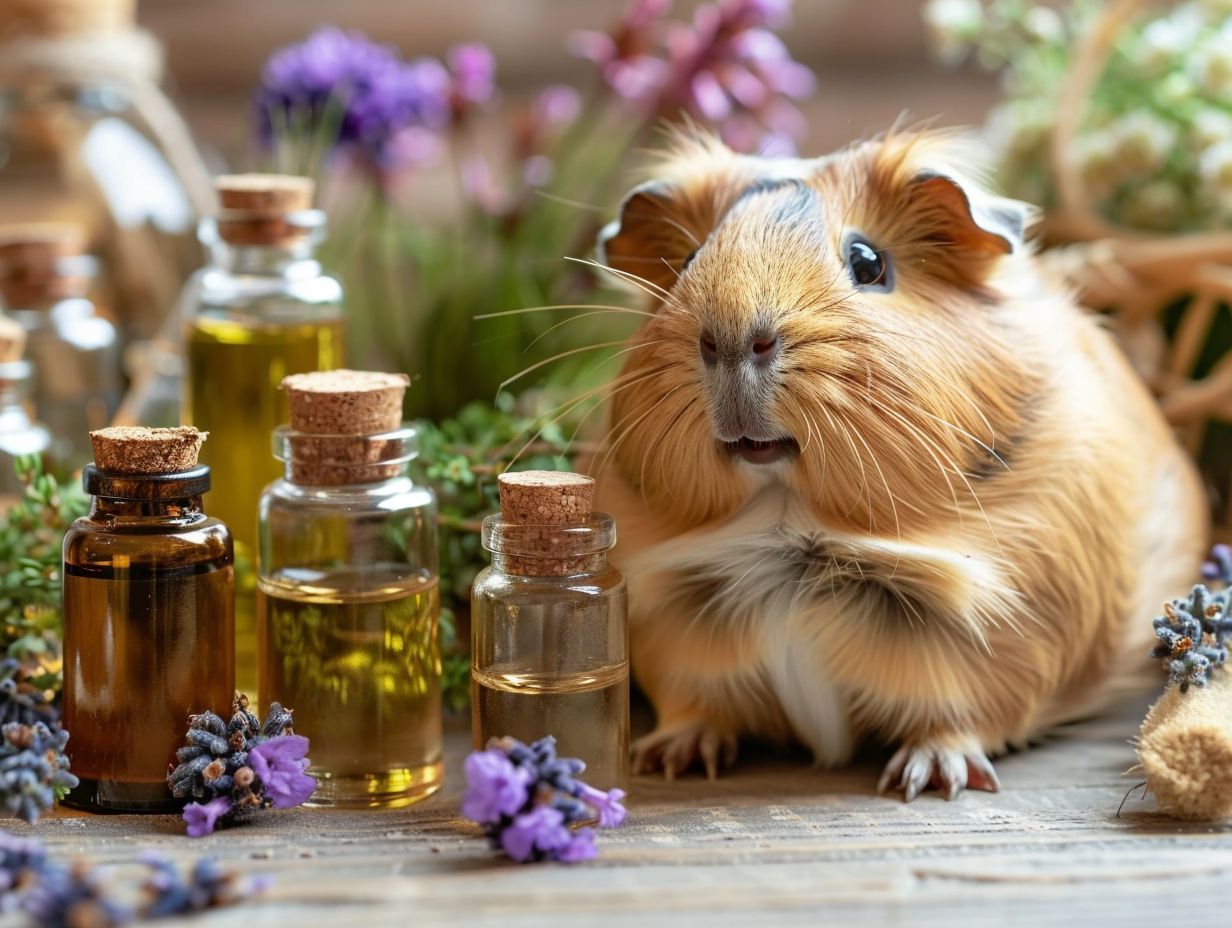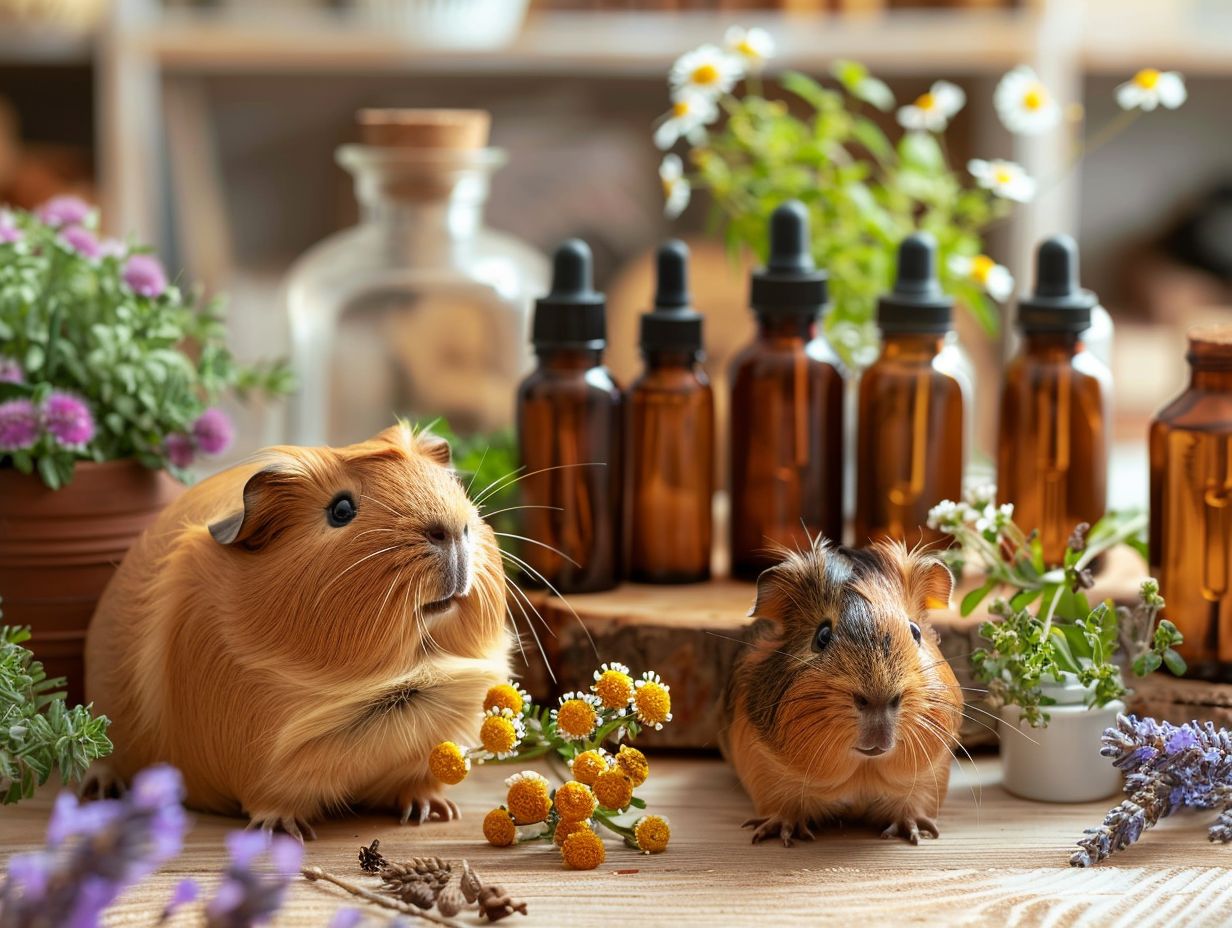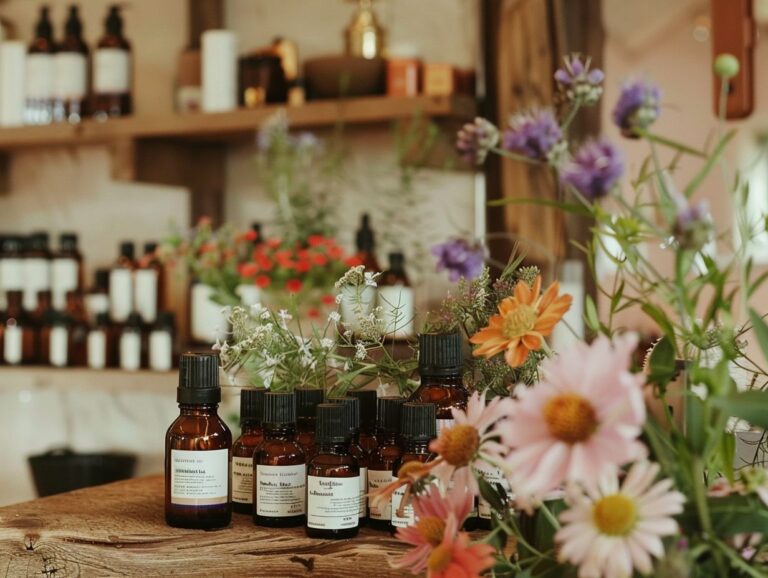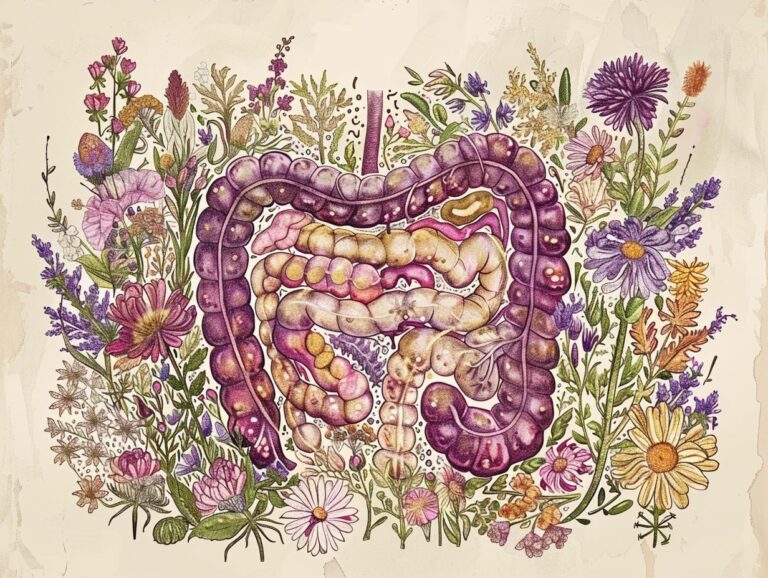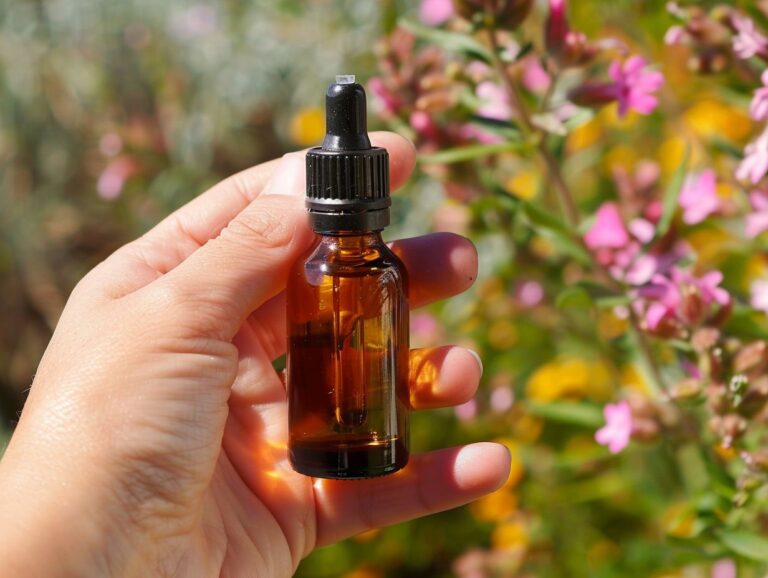Can Guinea Pigs Be Around Essential Oils
Are you a guinea pig owner who is curious about using essential oils around your beloved pets?
We will explore the world of essential oils and their safety for guinea pigs. From the potential risks of using certain oils to the benefits they can offer, we will discuss everything you need to know to ensure the well-being of your furry friends.
Find out which oils are safe, which ones to avoid, and how to use them responsibly around your guinea pigs.
Key Takeaways:
Can Guinea Pigs Be Around Essential Oils?
Guinea pigs are sensitive pets, and when it comes to essential oils, caution must be exercised to ensure their well-being. The use of essential oils around guinea pigs can pose risks that need to be carefully considered.
While essential oils are known for their therapeutic properties, these potent substances can be overwhelming and even harmful to guinea pigs due to their sensitive respiratory systems and delicate nature.
Many essential oils contain compounds that are toxic to small animals like guinea pigs if ingested or inhaled in large quantities. It’s crucial to remember that what may be beneficial or pleasing to humans can have adverse effects on these adorable creatures.
Common symptoms of essential oil toxicity in guinea pigs include respiratory distress, skin irritation, and in severe cases, even organ damage. It’s essential to be aware of the potential dangers and take necessary precautions.
What Are Essential Oils?
Essential oils are natural compounds extracted from plants that are commonly used in aromatherapy for various benefits. These oils, such as lavender, can have therapeutic effects on pets and humans alike.
Regarding using essential oils for pets like guinea pigs, it is essential to be cautious and knowledgeable about the appropriate oils and their dilution. Lavender oil, for instance, is known for its calming and stress-relieving properties, making it a popular choice for pet owners looking to create a soothing environment for their furry companions. Lavender oil can also help repel insects, which is particularly beneficial for outdoor guinea pigs.
Are Essential Oils Safe for Guinea Pigs?
While essential oils can offer benefits, they can also be harmful to guinea pigs due to their delicate respiratory systems. Understanding the toxicity levels of certain oils is crucial for the well-being of guinea pigs.
Guinea pigs have extremely sensitive respiratory systems, making them vulnerable to the potent effects of many essential oils. When these oils are diffused or applied in close proximity to these small animals, they can easily inhale the volatile compounds, leading to potential respiratory distress.
Proper ventilation and dilution are essential when using essential oils around guinea pigs to minimize the risk of adverse reactions. It’s advisable to consult with a knowledgeable veterinarian before introducing any new oils into the guinea pig’s environment.
What Are the Risks of Using Essential Oils Around Guinea Pigs?
Exposure to certain essential oils can lead to poisoning in guinea pigs, manifesting in symptoms such as sneezing, coughing, and difficulty breathing. Recognizing these signs is crucial for prompt treatment.
When guinea pigs are exposed to essential oils, it can disrupt their respiratory system, leading to severe respiratory distress. Ingestion of certain oils can also result in gastrointestinal issues like diarrhea and vomiting. Skin irritation and neurological symptoms may occur upon contact or inhalation of toxic oils. Immediate action is required when such symptoms are observed, as untreated poisoning can lead to organ damage and even death. It is imperative to consult a veterinarian experienced in treating guinea pigs for proper diagnosis and treatment to ensure the well-being of these beloved pets.
What Are the Benefits of Using Essential Oils for Guinea Pigs?
When used safely, essential oils can contribute to the well-being of guinea pigs. Oils like lavender can promote relaxation and alleviate stress for these sensitive pets.
Guinea pigs are known for their delicate nature, and introducing essential oils in a controlled manner can have a positive impact on their health. Lavender oil, in particular, is praised for its calming properties, which can help guinea pigs feel more at ease in their environment. The gentle aroma of lavender can also create a soothing atmosphere, fostering a sense of tranquility for these adorable creatures.
Aromatherapy
Aromatherapy with safe essential oils like lavender can have a calming effect on guinea pigs, promoting a sense of relaxation and well-being. Introducing aromatherapy in a controlled manner can positively impact the pet’s mood and environment.
Guinea pigs, known for their sensitive nature, can greatly benefit from the gentle and soothing properties of lavender oil. The use of aromatherapy can create a tranquil atmosphere in their living space, reducing stress and anxiety levels. By incorporating aromatherapy into their routine, pet owners can establish a calming ritual that helps in bonding with their furry companions.
The therapeutic scent of lavender can enhance the emotional state of guinea pigs, promoting a sense of security and comfort. This natural approach to relaxation not only benefits the pets themselves but also creates a harmonious environment for both the guinea pig and its owner.
Natural Insect Repellent
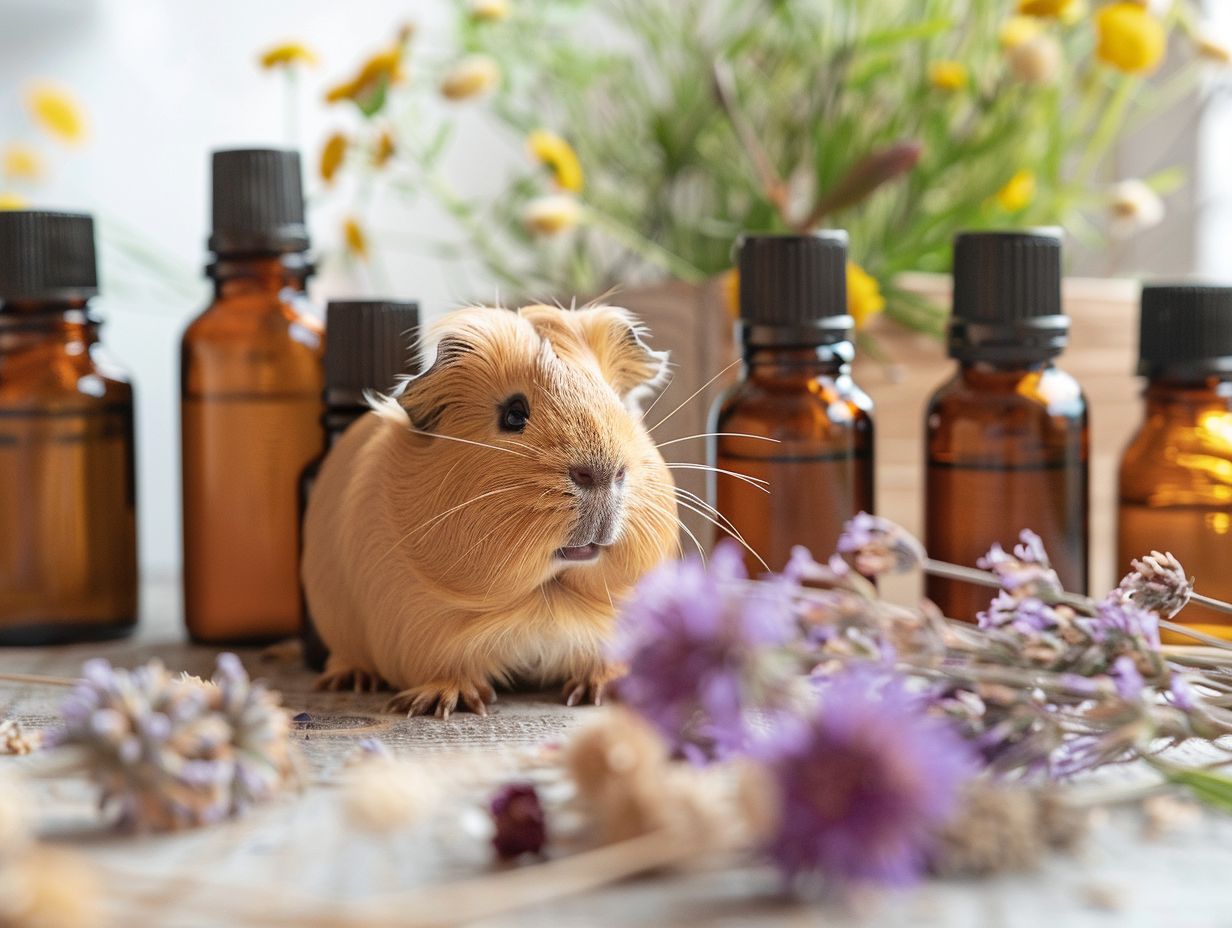
When using essential oils as insect repellents for guinea pigs, it is crucial to dilute them properly to ensure that they are gentle on the sensitive skin of these small creatures. Cedarwood oil, with its woody aroma, acts as an effective deterrent against insects, especially fleas and mites that might bother guinea pigs.
On the other hand, lemongrass oil not only repels insects but also has a refreshing scent that can uplift the mood of the pets and create a calming environment for them. It is important to consult a veterinarian or a knowledgeable pet care provider to determine the safe concentration levels of these oils for guinea pigs.
Skin and Coat Health
Essential oils can support the skin and coat health of guinea pigs, but care must be taken to avoid skin irritation. Lavender oil, when used in appropriate dilutions, can promote a healthy coat and skin for these pets.
Guinea pigs have delicate skin that can be sensitive to strong concentrations of essential oils. It is crucial to dilute oils properly before applying them to the guinea pig’s fur or skin.
Not all essential oils are safe for use with pets, and some can be toxic. Therefore, it’s vital to research each oil carefully and consult with a veterinarian before introducing any new oils to your guinea pig’s care routine.
Proper application techniques, such as using a carrier oil, like coconut or jojoba oil, can help ensure that the essential oil is diluted sufficiently for gentle application on the guinea pig’s skin.
What Types of Essential Oils Are Safe for Guinea Pigs?
Safe essential oils for guinea pigs include lavender, chamomile, and peppermint, which can offer therapeutic benefits without causing harm. These oils are gentle on the pets’ systems and can enhance their well-being when used correctly.
These three essential oils are known for their calming and soothing properties, helping to alleviate stress and anxiety in guinea pigs. Lavender, with its floral scent, can promote relaxation and improve sleep quality for your furry friend. Chamomile, a gentle oil often used for its anti-inflammatory properties, can aid in soothing skin irritations and gastrointestinal discomfort. Peppermint, known for its refreshing aroma, can help with respiratory issues and digestive problems in guinea pigs.
It is vital to dilute essential oils properly and introduce them gradually to ensure the safety and well-being of your guinea pig. Always consult with a veterinarian before using any essential oils on your pet to prevent any adverse reactions.
Lavender Oil
Lavender essential oil is one of the oldest and safest essential oils for guinea pigs when used appropriately. Its calming properties can benefit the pets’ well-being and promote relaxation without causing skin irritation.
Historically, lavender has been revered for its therapeutic properties, dating back thousands of years. It was widely used by ancient civilizations for its soothing effects on the mind and body. Regarding guinea pigs, this gentle oil can be a safe option due to its mild nature. Lavender essential oil is known for its anxiety-reducing benefits, which can be particularly helpful for nervous or stressed guinea pigs.
- One of the main advantages of using lavender oil for guinea pigs is its minimal risk of causing skin irritation or allergic reactions.
- The scent of lavender is believed to have a calming effect on animals, making it a popular choice for promoting relaxation in pets.
Chamomile Oil
Chamomile oil is gentle and suitable for guinea pigs with sensitive skin. Its soothing properties can help maintain skin health and alleviate any discomfort or irritation the pets may experience.
In addition, chamomile oil can act as a natural antiseptic, promoting healing for minor cuts or abrasions that guinea pigs may accidentally get from their surroundings. Regular use of chamomile oil in grooming routines can also contribute to a shinier coat and a healthier overall appearance for these small furry companions. The calming aroma of chamomile can have a tranquilizing effect, helping to reduce stress and anxiety in pets, making it a versatile addition to their care regimen.
Peppermint Oil
Peppermint essential oil can be beneficial for guinea pigs dealing with muscle spasms or joint pain. Its invigorating properties can offer relief and promote comfort for the pets.
Not only does the scent of peppermint create a fresh and stimulating environment for guinea pigs, but the oil’s soothing aromatherapy effects can also help relax their muscles and reduce tension.
When applied topically in a diluted form, peppermint essential oil can be massaged gently into the affected areas of a guinea pig’s body to help alleviate discomfort, making it a gentle and natural option for addressing muscle cramps and joint stiffness.
The cooling sensation provided by peppermint essential oil can also act as a natural muscle relaxant, aiding in the easing of pain and enhancing the overall well-being of guinea pigs.
What Types of Essential Oils Are Harmful for Guinea Pigs?
Certain essential oils, such as citrus oils and eucalyptus, can be harmful to guinea pigs due to their toxic nature. Understanding which oils to avoid is essential for the safety of these pets.
Guinea pigs have sensitive respiratory systems, making them especially susceptible to the harmful effects of certain essential oils.
- Citrus oils, such as lemon and orange, contain compounds that can cause respiratory distress, irritation, and even liver damage in guinea pigs if inhaled or ingested.
- Similarly, eucalyptus oil is known to be toxic to small animals like guinea pigs, potentially leading to symptoms like drooling, weakness, and difficulty breathing.
Citrus Oils
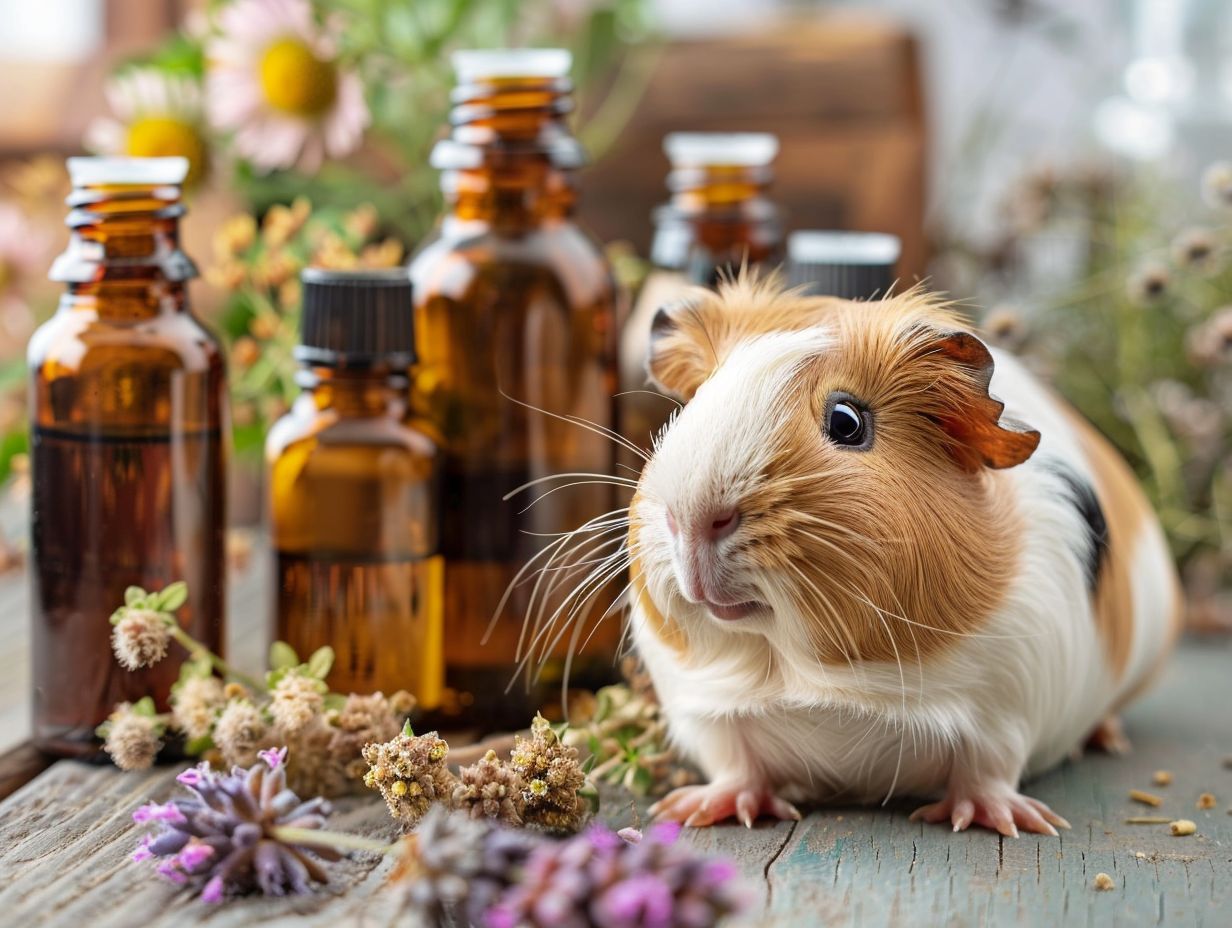
When citrus oils are inhaled by guinea pigs, they can irritate their sensitive respiratory systems, leading to difficulties in breathing and potential respiratory distress. Exposure to these oils may cause excessive drooling, indicating discomfort and potential toxicity in the pets.
Due to the risk they pose, it is crucial for guinea pig owners to be aware of the harmful effects of citrus oils and ensure that these products are kept well out of reach of their furry companions. Vigilance in this regard can help prevent unnecessary suffering and health complications in these small animals.
Tea Tree Oil
Tea tree oil can cause skin irritation and lethargy in guinea pigs when exposed. Due to its potential harmful effects, it is vital to avoid using this oil near the pets.
Even small amounts of tea tree oil can trigger adverse reactions in guinea pigs, leading to dermatitis, itching, redness, and in severe cases, burns on their delicate skin. Guinea pigs are particularly sensitive to certain substances, and tea tree oil is one of them. The lethargy induced by exposure to this oil can disrupt their normal behavior, appetite, and overall well-being. It’s crucial for pet owners to be cautious, steering clear of products containing tea tree oil to ensure the health and safety of their guinea pigs.
Eucalyptus Oil
Eucalyptus oil can lead to poisoning and gastrointestinal upset in guinea pigs due to its harmful properties. Keeping guinea pigs away from this oil is crucial to avoid any health issues.
As a responsible owner, it’s essential to remember that eucalyptus oil contains toxic compounds that can be extremely harmful to guinea pigs if ingested or even inhaled in large quantities. The powerful aromatic molecules present in eucalyptus oil can lead to a wide range of health complications for these small pets, ranging from mild irritation to severe poisoning.
When exposed to eucalyptus oil, guinea pigs may experience symptoms like drooling, vomiting, respiratory distress, and in severe cases, seizures or even death. The gastrointestinal tract of guinea pigs is particularly sensitive to the toxic effects of this oil, making it imperative to keep all eucalyptus-containing products out of their reach.
How to Use Essential Oils Safely Around Guinea Pigs?
To ensure the safety of guinea pigs, essential oils should be diluted before use and diffused in well-ventilated spaces. Proper precautions must be taken to prevent any adverse reactions in the pets.
When using essential oils around guinea pigs, it is crucial to dilute them properly as their sense of smell is much more sensitive than humans, making them more susceptible to strong concentrations. A recommended dilution ratio is one to three drops of essential oil to one ounce of a carrier oil like coconut or almond oil. Diffusing the oils in the air rather than applying them directly on the guinea pigs’ fur can help minimize direct contact and potential irritation. Ensuring proper ventilation by opening windows or using a fan is essential to prevent the pets from inhaling excessive amounts of the oils, which could be harmful to their respiratory system.
Dilute the Essential Oils
Before using essential oils around guinea pigs, it is crucial to dilute them properly to reduce their potency and potential harm. Dilution ensures that the oils are safe for the pets and should be done in a well-ventilated area.
When diluting essential oils for guinea pigs, it is recommended to use a carrier oil such as coconut oil or olive oil. These carrier oils help in reducing the concentration of the essential oils, making them milder and safer for the sensitive respiratory systems of guinea pigs.
It is important to follow specific dilution guidelines provided by reputable sources to avoid any adverse effects. Ensuring a well-ventilated space during the dilution process is crucial as it helps in dispersing any strong odors and prevents overwhelming the guinea pigs with potent scents.
Use a Diffuser
Using a diffuser to disperse essential oils is a safe way to introduce aromas without overwhelming guinea pigs. Avoid using scented candles or other overpowering methods that may cause distress to the pets.
Guinea pigs have a highly sensitive respiratory system, making them vulnerable to strong scents that can lead to respiratory issues and stress.
Diffusers
are designed to gently disperse essential oils, creating a soothing and calming environment for your furry friends. By using a diffuser, you can control the intensity and duration of the aroma exposure, ensuring it remains at a safe level for your guinea pigs. This method not only benefits your pets’ well-being but also enhances the overall ambiance of their living space.
Keep the Guinea Pig Away from the Source
Preventing direct exposure of guinea pigs to essential oil sources is essential for their safety. Ensure that the pets have access to fresh air and are not overwhelmed by the scents to maintain their well-being.
It is crucial to keep guinea pigs away from direct exposure to essential oils, as these potent substances can have adverse effects on their respiratory systems and general health. To minimize the risk, consider diffusing oils in well-ventilated areas away from pet enclosures and use caution with products containing essential oils. Focus on providing a balanced environment for your furry companions, including a comfortable, spacious living space with proper ventilation and natural light. Monitor your guinea pigs’ behavior and health closely to ensure they are thriving in a safe and harmonious setting.
Frequently Asked Questions
Can Guinea Pigs Be Around Essential Oils?
Yes, it is generally safe for guinea pigs to be around essential oils. However, certain precautions should be taken to ensure their well-being.
What essential oils are safe for guinea pigs?
Lavender, chamomile, and rose geranium essential oils are generally safe for guinea pigs. Always dilute the oils and use them sparingly.
Are there any essential oils that are harmful to guinea pigs?
Yes, some essential oils can be harmful to guinea pigs. These include citrus oils, peppermint, and eucalyptus. These oils can irritate their sensitive respiratory system.
How should I use essential oils around my guinea pigs?
It is best to use essential oils in a diffuser or spray bottle, and in a well-ventilated area. Avoid direct contact with your guinea pigs and do not use oils on their fur or skin.
Can guinea pigs have an allergic reaction to essential oils?
Yes, guinea pigs can have an allergic reaction to essential oils, just like any other animal. It is important to observe your guinea pig’s behavior after using essential oils and discontinue use if there are any signs of discomfort.
What should I do if my guinea pig accidentally ingests essential oils?
If your guinea pig accidentally ingests essential oils, contact your veterinarian immediately. Essential oils can be toxic if ingested in large amounts, and it is important to seek professional help as soon as possible.

